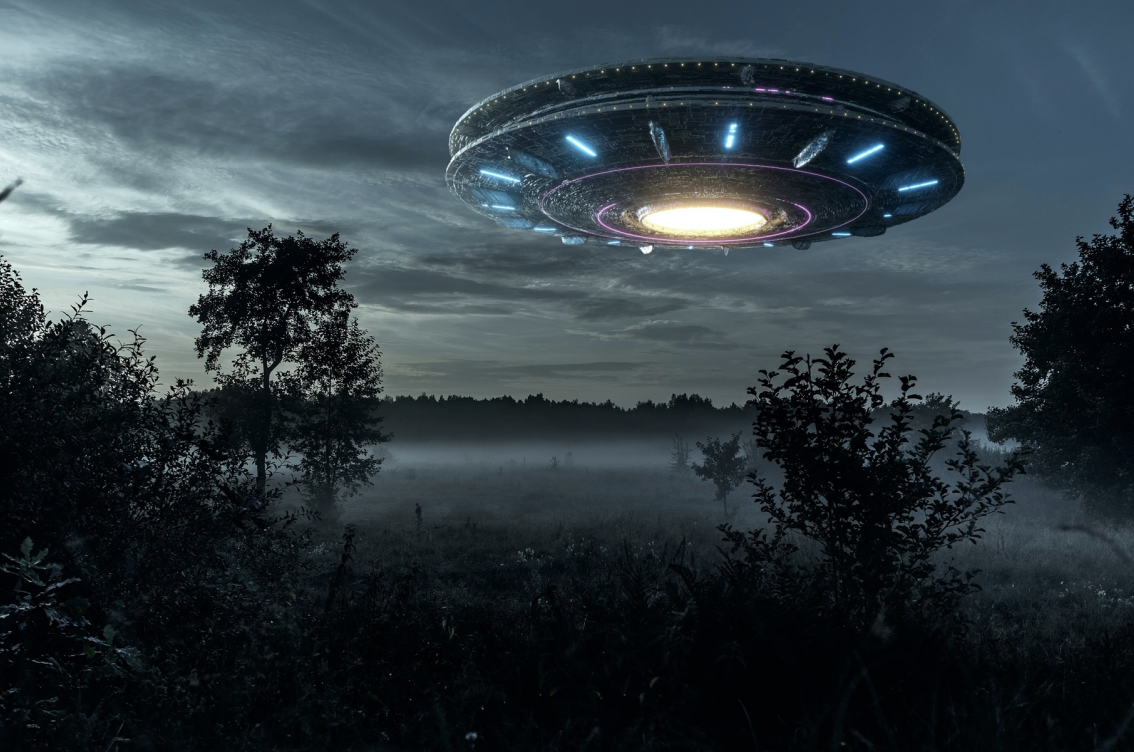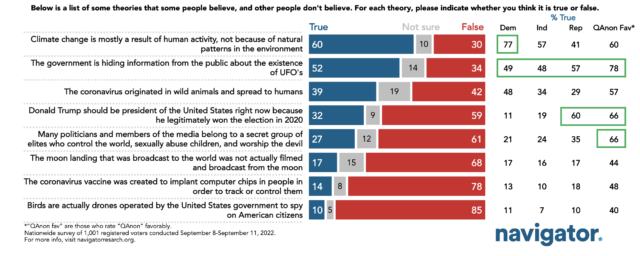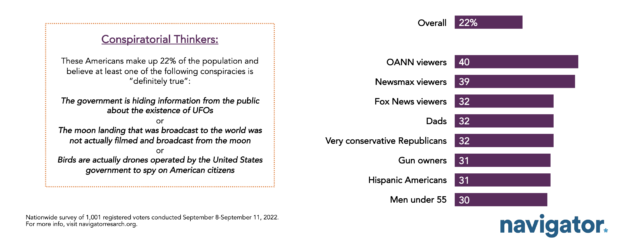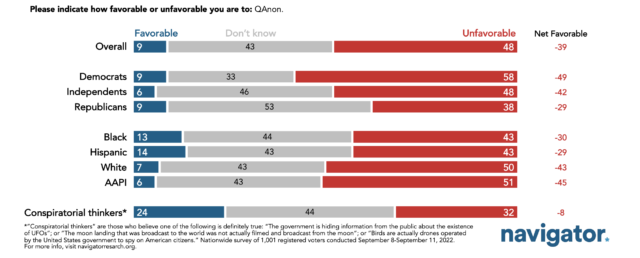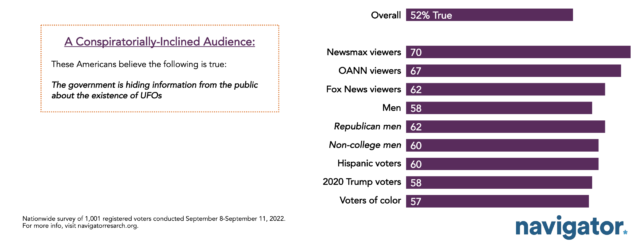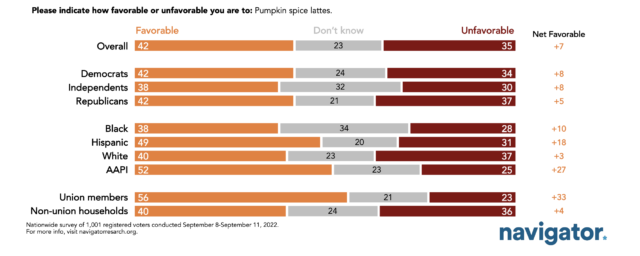Belief in UFO’s Most Widespread and Bipartisan Conspiracy Belief, Though Most Conspiracies Rejected by Americans
Americans who view QAnon favorably (9%) believe the government is hiding UFO information (78% true), that Trump legitimately won the 2020 election (66%), and that many politicians and other figures belong to a secret group of abusive, devil-worshiping elites (66%).
Conspiratorial Thinkers More Likely to Be Conservative Cable News Viewers, Very Conservative GOP, Gun Owners
Those who regularly watch OANN (40% are conspiratorial thinkers), Newsmax (39%), or Fox News (32%) are more likely to be conspiratorial thinkers. Other over-indexing groups include dads (32%), very conservative Republicans (32%), and gun owners (31%).
QAnon Is Viewed Deeply Negatively, Even By Those Prone to Believing in Conspiracy Theories Generally
The group is viewed negatively across partisan and racial groups, including by conspiratorial thinkers*, though they are more likely to hold a favorable opinion of QAnon than most (24% favorable).
A Majority of Americans Believe in a Government Cover-Up of UFO Information
Men (58%) believe the government is hiding UFO information to a greater extent than women (47%). Americans who watch rightwing news are especially skeptical; more than two-thirds of OANN (67%) and Newsmax (70%) viewers think the government is hiding UFO information. Left-leaning news viewers are not as skeptical – CNN (51%) and MSNBC (53%) – though over half still are.
The Pumpkin Spice Latte Enjoys Bipartisan Support, Viewed Most Favorably by Union Members
The autumnal beverage sees net positive favorability across the board; union members and AAPI Americans outpace the competition, with 56% and 52% favorability respectively toward the piquant pumpkin potable.
About The Study
Global Strategy Group conducted public opinion surveys among a sample of 1,001 registered voters from September 8-September 11, 2022. 96 additional interviews were conducted among Hispanic voters. 76 additional interviews were conducted among Asian American and Pacific Islander voters. 100 additional interviews were conducted among African American voters. 99 additional interviews were conducted among independent voters.
